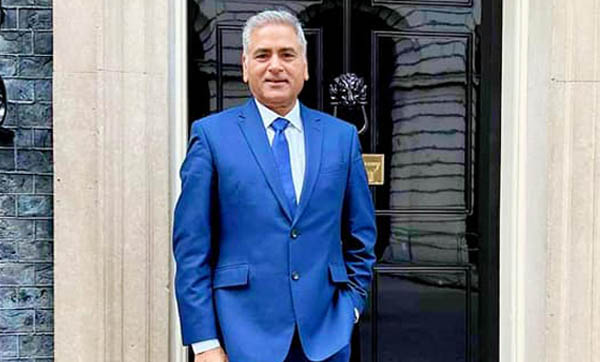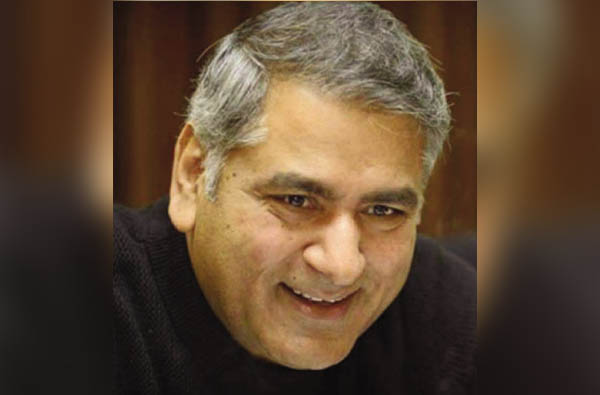Nawaz Sharif: The Rise, Fall, and Resurgence of Pakistan’s Most Resilient Politician

Dr Ashraf Chohan
Chief Editor Daily Rapid News
Introduction:
Nawaz Sharif’s political career is a tale of perseverance, resilience, and unyielding influence in Pakistan’s turbulent political landscape. Born on December 25, 1949, in Lahore, Nawaz Sharif has been a dominant figure in Pakistani politics for over four decades. Despite being ousted from power three times, facing imprisonment, exile, and an array of legal challenges, he remains a central figure in the nation’s political discourse. His journey is not just a personal saga but also a reflection of Pakistan’s political volatility.
Early Life and Political Ascent:
Nawaz Sharif hails from a business-oriented family with roots in the Kashmiri region.
His family did nothing but business until brutal nationalisation by Bhutto regime in 70s which resulted in migration of the family abroad for business.
His entry into politics and return of the family into business was facilitated by General Zia-ul-Haq, the military dictator who ruled Pakistan during the 1980s.
Sharif’s early political career began in Punjab, where he served as the Finance Minister before becoming the Chief Minister of the province in the mid-1980s. His association with Zia’s military regime gave him a platform to rise rapidly within the political ranks.
Zia era ended but Sharif’s era began in the late 80’s. Against all predictions he rose as a brave nationalist who took a staunch stand against establishment when he was prematurely deposed first time.
In 1990, Nawaz Sharif became the Prime Minister of Pakistan for the first time, heading the Islami Jamhoori Ittehad (IJI), a coalition of right-wing parties. His first tenure was marked by efforts to privatize state-owned enterprises and reduce government regulation, which won him support from the business community. However, his relationship with the military soured due to his attempts to assert civilian supremacy, leading to his dismissal by President Ghulam Ishaq Khan in 1993.
Second Term and Ouster:
Sharif returned to power in 1997 with a landslide victory, this time with a stronger mandate. His second term is often remembered for the nuclear tests conducted in May 1998, which made Pakistan a declared nuclear state. The decision to go nuclear earned him immense popularity domestically but also brought international sanctions.
However, this tenure too was marred by conflicts with the military and judiciary. His decision to dismiss General Pervez Musharraf as the Army Chief led to a military coup in October 1999. Musharraf’s coup marked the beginning of a long period of exile for Sharif, who was sent to Saudi Arabia, where he remained until his return to Pakistan in 2007 under an agreement brokered by international players.
The Resurgence:
Nawaz Sharif’s return to Pakistan in 2007 was a turning point. Despite the setbacks, he remained a potent political force, rebuilding his party, the Pakistan Muslim League (Nawaz), and positioning himself as a pro-democracy leader. His stance against military interference in politics and his calls for an independent judiciary resonated with the public.
In the 2013 general elections, Nawaz Sharif was elected Prime Minister for a third time. His third term focused on economic reforms, infrastructure projects like the China-Pakistan Economic Corridor (CPEC), and efforts to stabilize the energy sector. However, his tenure was plagued by allegations of corruption, particularly after the Panama Papers leak in 2016. His dismissal and rise of imran khan, role of General Faiz and General Bajwa are still under investigation.
Disqualification and Legal Battles:
In 2017, Nawaz Sharif was disqualified from holding public office by the Supreme Court of Pakistan following an investigation into the Panama Papers revelations. He was removed from the office third time on the disputed allegation of none acceptance of wages from a Dubai based company.
This anyways marked the beginning of yet another tumultuous period for Sharif. He was subsequently sentenced to prison on corruption charges in 2018, leading to his arrest and eventual release on bail due to health concerns.
Enduring Influence and Legacy:
Despite his legal troubles and political setbacks, Nawaz Sharif remains a key figure in Pakistani politics. His brother, Shehbaz Sharif, is serving second time as the Prime Minister of Pakistan, and his daughter, Maryam Nawaz, has emerged as a prominent leader within the PML-N, hinting at the continuation of the Sharif political dynasty. Nawaz Sharif’s political resilience is evident in his ability to stay relevant and influential despite repeated attempts to sideline him.
Sharif’s political journey underscores his patience, wisdom, and ability to navigate Pakistan’s complex political landscape. His respect for the democratic process, despite the personal costs, and his ability to rise from the ashes time and again, make him one of Pakistan’s most significant political figures. His legacy is one of both triumph and controversy, reflecting the larger struggles within Pakistani society regarding democracy, governance, and the role of the military in politics.
In a reply to a question from the writer of these lines that ‘how you return into Power again and again after being sidelined’ his reply was only “patience and prayers”.
In conclusion, Nawaz Sharif’s story is far from over. As of now, he remains a pivotal player in the political arena, with his actions and decisions continuing to shape the future of Pakistan.
His ability to endure criticism, his strategic patience, and his unshakable presence in politics reflect a man who, despite all odds, refuses to be sidelined.







